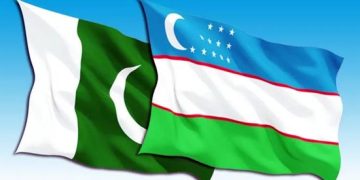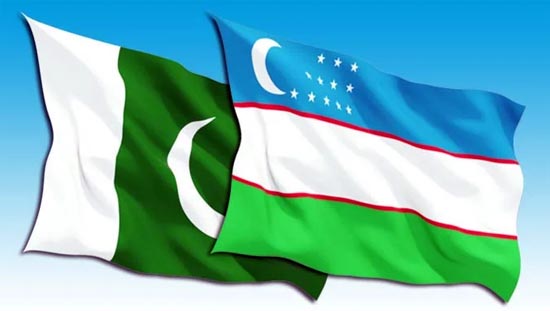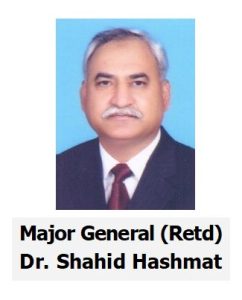Pakistan and Uzbekistan have cherished brotherly religious, cultural and historical heritage for many centuries. Names of Tashkent, Samarkand, Bukhara, Termez, Khiva and Farghana are very common to most Pakistanis. Since their creation and independence, both countries have enjoyed extremely cordial bilateral relations. Pakistan was among the first countries to recognize Uzbekistan on its independence in 1991 and to establish the diplomatic relations. All successive Governments political and leadership in Pakistan have always valued the multifaceted relations between both countries. Pakistan and Uzbekistan are members of the United Nations (UN), the Organization of Islamic Countries (OIC), the Economic Cooperation Organization (ECO) and the Shanghai Cooperation Organization (SCO). Moreover, meetings of Pakistan-Uzbekistan Joint Ministerial Commission are also held
Political leadership on both sides have maintained very cordial relations that have improved in a steady manner. However, there has been phenomenal improvement in bilateral relations in last two years. Former Prime Minister, Imran Khan visited Uzbekistan on 15-16 July 2021. He was accompanied by a high-level official delegation, including the Foreign Minister and other members of the Cabinet. Over 100 Pakistan’s leading businessmen visit Tashkent on the occasion. During this visit, he inaugurated Uzbekistan-Pakistan Business Forum and addressed an international trade conference. A number of agreements and Memorandums of Understanding (MoU) were also signed to expand bilateral cooperation in multiple areas. The most important were regarding ‘Transit Trade Agreement’ and ‘Simplification of Visa procedures ‘. The “Joint Declaration’ that was signed on 15 July comprehensively covered all aspects of diplomatic, commercial and cultural relations.
Expressing his feelings, the Prime Minister Imran Khan tweeted: “It was a wonderful experience to finally visit Samarkand, the greatest city in the world at the beginning of the 15th century”. He also visited the tombs of Amir Taimur and Imam Bukhari in this historic city.
President Shavkat Mirziyoyev visited Pakistan in March 2022. Prime Minister Imran Khan and Uzbek President Shavkat Mirziyoyev, after holding wide ranging bilateral talks, signed the Joint Declaration on the Establishment of Strategic Partnership between both countries, with a focus on increased cooperation in the areas of trade and economy President Mirziyoyev also called on President Arif Alvi. At the meeting, President Alvi highlighted prospects of regional connectivity and integration of Uzbekistan and Central Asian countries to the world through Pakistan’s seaports.
On May 31, 2021, Nurdinjon Ismoilov, Speaker of the Legislative Chamber of the Oliy Majlis of Uzbekistan, while meeting Chairman Senate of Pakistan , at the Parliament Houses, aid that the Uzbek people, and the Government of Uzbekistan are committed to strengthening friendly relations with Pakistan.
During March 2022, Uzbek Deputy Foreign Minister Mr. Furqat Sidiq visited Islamabad to participate the 48th Foreign Minters’ Conference of the OIC. During his meeting with Asad Qaisar, Speaker Pakistan of National Assembly, on 22 March, the Speaker reiterated Pakistan’s resolve to strengthen relations with Uzbekistan through enhanced interaction between parliaments of both the countries and cooperation in trade and investment sectors.
Regarding Connectivity between, Pakistan and Uzbekistan, it can be said that we have multiple layers of connectivity that reflect our historical bonds, religious affiliations, and relations pertaining to commerce and trade. In ancient times, the Silk Roads were the main source of connectivity. In the words of Peter Frankopan, the author of “Silk Roads”, the villages connected to towns, the towns to the cities, and the cities to the Silk Roads. This is how a regional network of connectivity was established. Uzbekistan and its cities have always remained main commercial hub for trade between Central and South Asia, of course through the land routes that now constitutes Pakistan.
Another profound dimension of People to People (P2P) connectivity is Religious and Cultural affiliation. Number of Muslim saints and Sufis came to Sub-continent, Indo-Pakistan, from Uzbekistan. Their devotions and services towards spreading Islam are unforgettable. Imam Bukhari and Imam Tirmazi are extremely revered even at present times. Moreover, there are around 4000 words that are common in Urdu and Uzbek languages. That is key to connectivity. Historically, Zaheer ud Din Babar, the founder of Mughal Dynasty in India belong to Farghana Valley.
Commerce and trade, in current era, is the most important factor in galvanizing contacts among people of various regions, as it was in ancient times as well. Uzbekistan is a landlocked country but it occupies a strategically important position in Central Asia. This position is a source of strength and vulnerability as well. During Soviet occupation, Uzbekistan’s most trade links were towards north through Central Asian states. Though, the best natural trade routes is to the south. The reason is simply – the geography. That is the logical reason behind President Mirziyoyev’s Southern Policy. Simply stated: Uzbekistan needs commercial opening to the world. Since President Mirziyoyev came to power in 2016, Uzbekistan has been moving decisively to address these issues and to diversify its trade routes.
During President Shavkat Mirziyoyev visit to Pakistan in early March 2022, Pakistan-Uzbekistan Transit Trade Agreement (TTA) was operationalized. Another important development was signing of Preferential Trade Agreement (PTA). Both countries have decided to abolish or substantially reduce custom duties on numerous goods. The PTA is expected to enhance bilateral trade manifold by removing non-tariff berries as well. Pakistan and Uzbekistan are working on signing Free Trade Agreement (FTA) as well.
Pakistan and Uzbekistan have agreed to transform current friendship to the level of Strategic Partnership, through collaboration in the fields of diplomacy, regional peace & security and commerce & trade. Five pillars of Pakistan’s “Vision Central Asia’ policy: connectivity, trade, investment, energy, and security provide necessary guidance towards that end. The strong bilateral relations between Pakistan and Uzbekistan would further strengthened through improving and expanding existing connectivity. Some suggestions are as follows:
* We must strengthening our cooperation in the UN, the OIC, ECO and SCO.
* Cooperation among universities and research institutes must also be increased to include educational and cultural exchanges. Pakistan should offer 200 -300 free scholarships, each year, to Uzbek students on the similar lines as offered to Sri Lanka and Afghanistan.
* Trade volume speaks of P2P and Business to Business (B2B) contacts. Need not to say that the real potential of bilateral trade is much higher than it is at present. It is hoped that TTA, PTA, and FTA will facilitate to increase our trade manifold.
* China Pakistan Economic Corridor (CPEC) will open new vistas of connectivity, facilitating multifaceted cooperation in the region and improving connectivity between Centeral and South Asia. It would provide access to Uzbek products to Middle East / Gulf States, Africa and to Europe, as well, through Mediterranean. Therefore, Connectivity can be enhanced through realizing dreams of multi lanes highways, high speed railways, fiber optics and construction of SEZs. The Trans-Afghan Railway Line Project, connecting Termez, Mazar-i-Sharif, Kabul and Peshawar would transform the geo-economic dynamics of the Central Asian Region. This projects should be executed as an extension of CPEC or as the Central Asia Regional Economic Cooperation (CAREC) that should connected to CPEC.
* Peace and stability in Afghanistan is vital to draw the dividends from land connectivity and the economic progress and prosperity of the region. Moreover, to enhance P2P and B2B contacts between Pakistan and Uzbekistan and to further extend these to Central Asian state. Therefore, both countries must cooperate in ensuring sustainable peace in Afghanistan by making it a stakeholder in all such economic projects.
* The air flights from Lahore to Tashkent were discontinued due to Covid-19 Pandemic. In addition to restart these flights immediately, additional flights from different cities in Pakistan to Uzbekistan should also be planned to increase and facilitate P2P contacts.
* There is a great potential to enhance ‘Religious Tourism and B2B interaction. Therefore, both countries must relax their Visa Policy to include 90 Days Visa on arrival.
The above mentioned steps are not an exhaustive list. Many more steps are required to be undertaken to enhance and strengthen our relations. However, a better start must be made immediately, without any further delay.
The writer is a former
High Commissioner of Pakistan to Sri Lanka.
This article is based on his speech delivered at a Webinar on Pakistan- Uzbekistan Relation on June 13, 2022.






